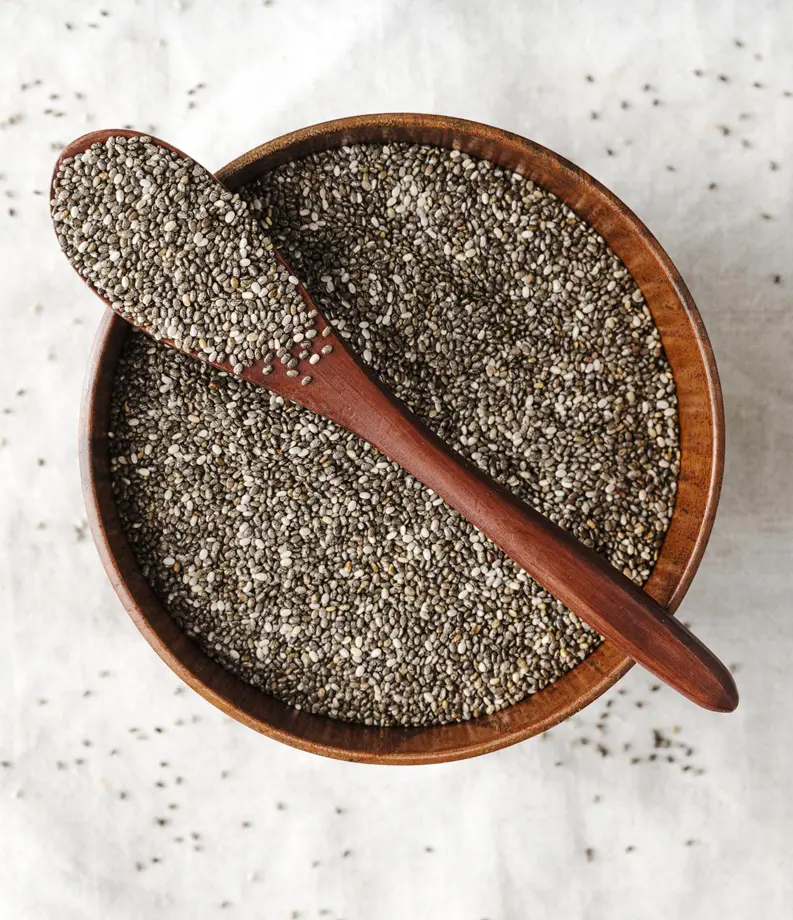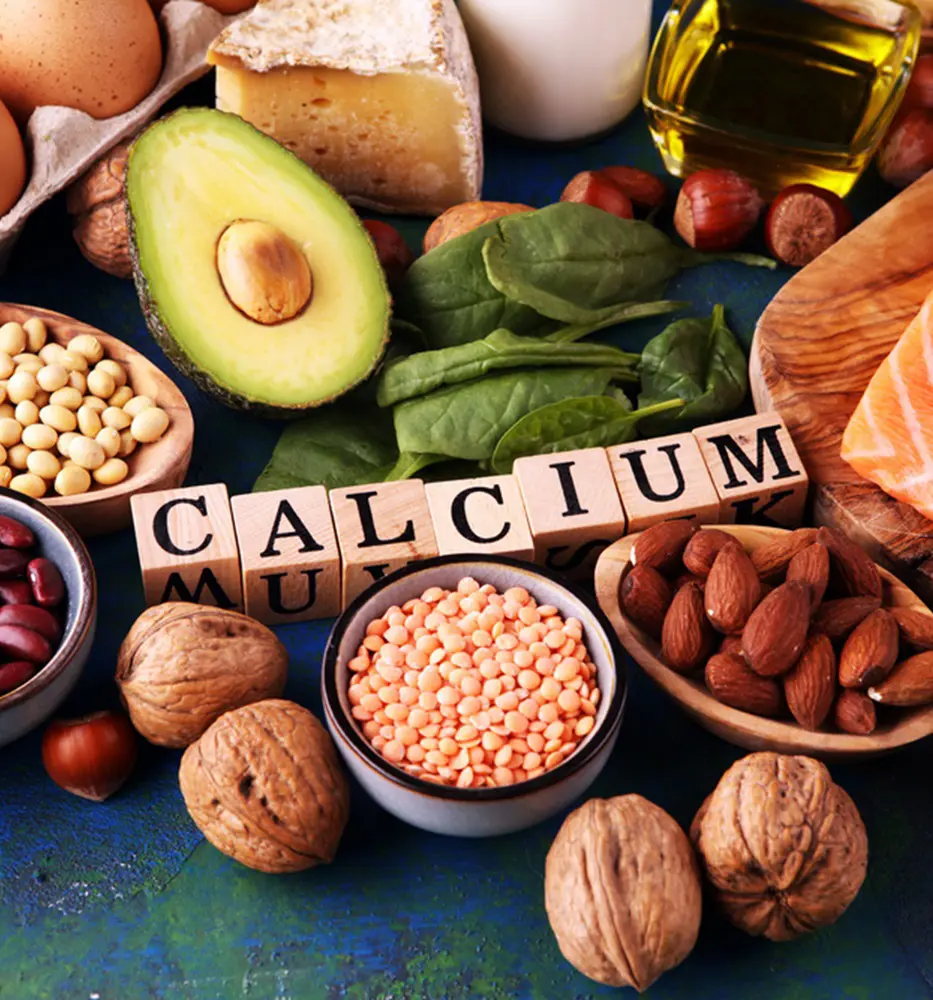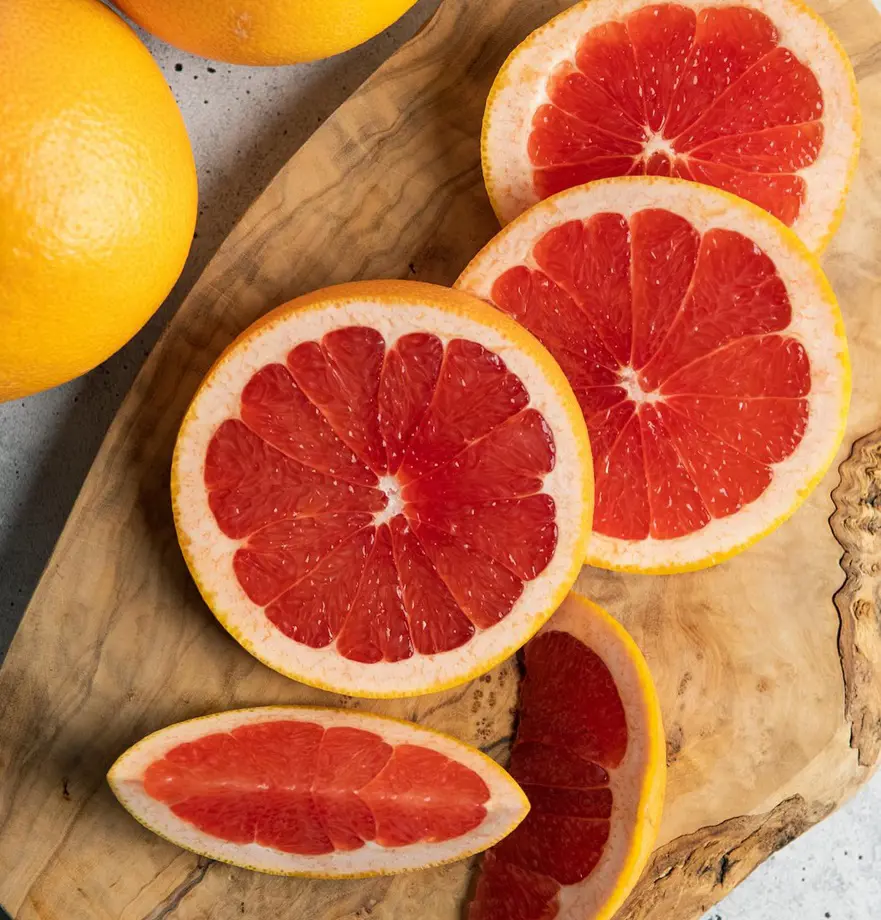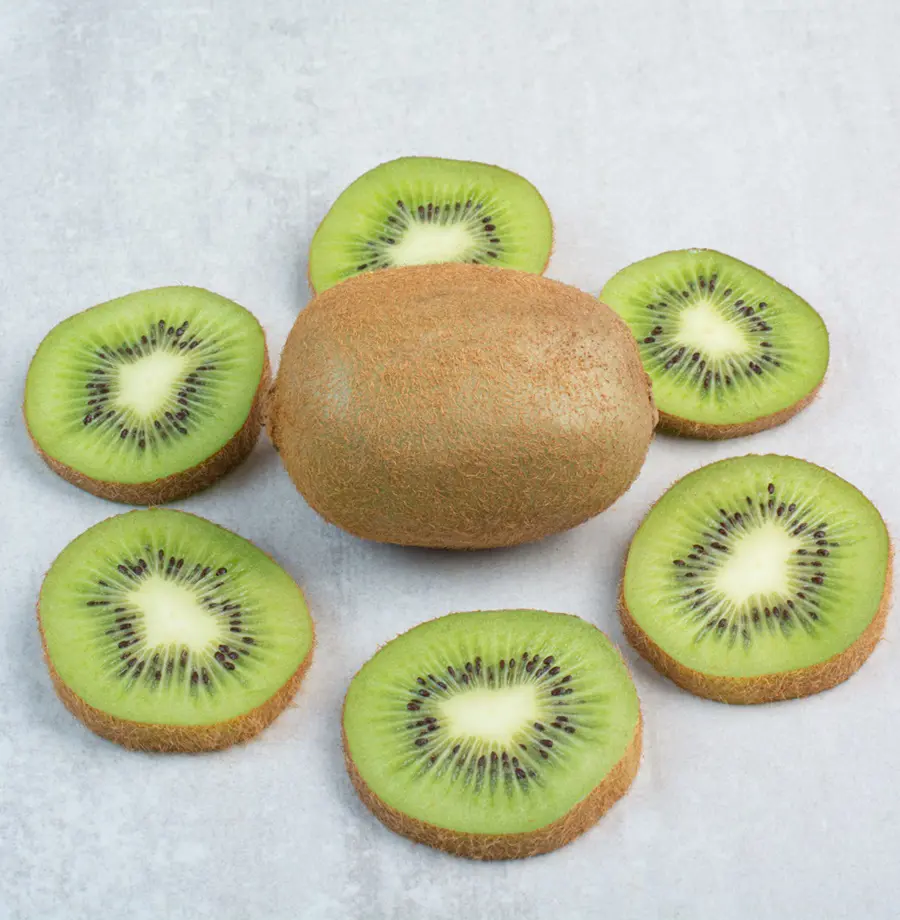20 Health Benefits Of Turmeric And Curcumin
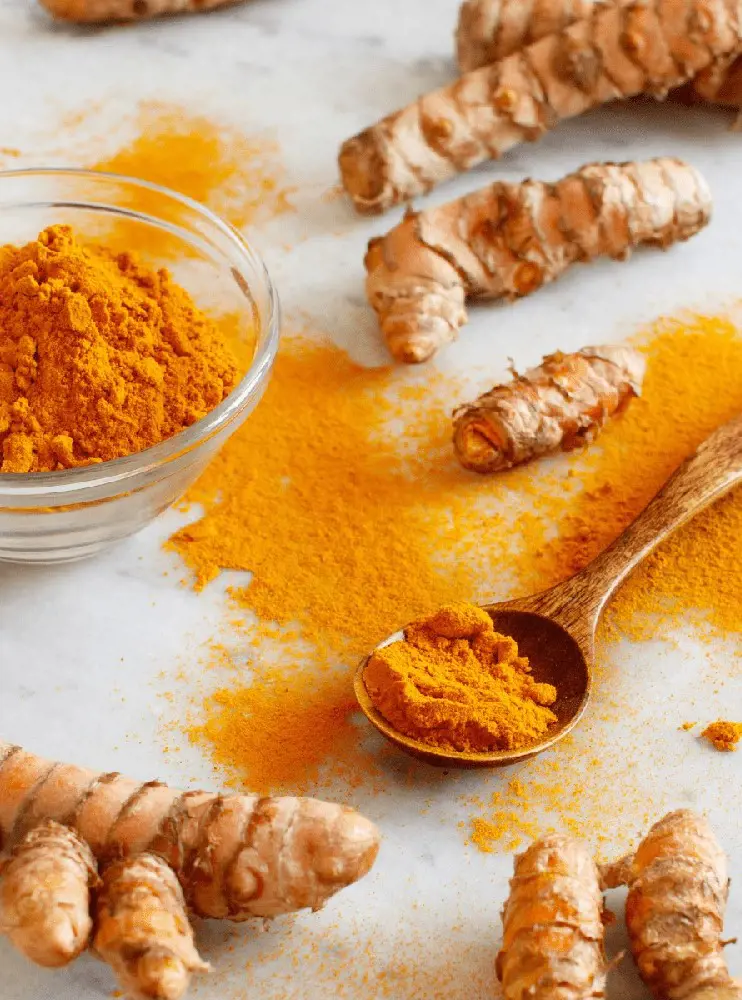
This post may contain affiliate links. If you make a purchase through links on our site, we may earn a commission.
As the temperatures dip, most of us suffer from sniffles and coughs. It is often not pressing to warrant a visit to the doctor; therefore we rely on home remedies like getting plenty of rest and drinking turmeric tea.
Turmeric, a close cousin to ginger, is commonly used in Indian, Southeast Asia, and Middle Eastern cooking to give food its distinct yellow color. It has many healing properties and is touted as a superfood by health practitioners and scientists. Many of the benefits of turmeric come from its main active ingredient, curcumin. Here, we outline 20 health benefits of turmeric and curcumin.
1. Help With Viral Infections

We often resort to drinking turmeric tea whenever we are down with common viral illnesses like colds and flu. This is because the curcumin in turmeric has an antihistamine effect on the body, which is beneficial in treating viral infections.
When we are down with seasonal flu, our body releases excessive histamine and inflames the airways. This leads to swelling in the nasal passage, causing breathing difficulties, coughing, and other related symptoms. Therefore, our body needs curcumin to alleviate these symptoms and boost our immunity.
2. Lessen Inflammation

Some levels of inflammation are good for the body as they help fight foreign viruses and play an important role in repairing damage in our body. However, problems arise when inflammation becomes chronic and affects tissues in our body. Thankfully, this can be combated to a certain extent with turmeric.
According to research, having low-level inflammation can help prevent chronic diseases. Thus, it is important to consume turmeric it helps keep inflammation levels low in our bodies. However, very high doses are required to produce medicinal results.
3. Protect Against Heart Disease
Thanks to curcumin’s ability to reduce inflammation and oxidation, research shows that prolonged consumption of turmeric might help in fighting against heart diseases. Many heart diseases are caused by dysfunction of endothelium, the lining of our blood vessels.
When our endothelium does not function properly due to age or health problems, it fails to regulate blood pressure and clotting, among other things. According to research, curcumin may improve endothelial function and reduce our likelihood of developing heart disease.
4. Prevent Certain Types Of Cancer

As mentioned before, chronic inflammation is fatal for our body and can lead to chronic diseases such as cancer. Research suggests that curcumin in turmeric lowers levels of inflammation and may prevent cancer growth, kill cancer cells, and alleviate treatment side effects. In one study, an individual experienced a brief but significant tumor regression after consuming 8g of turmeric daily.
Meanwhile, in another study, curcumin reduced the severity of radiation in a patient. However, despite the findings, scientists claim more research is needed to understand this phenomenon.
5. Ease Symptoms of Arthritis
Arthritis is an inflammatory condition affecting mostly the elderly. It affects the joints, causing pain and stiffness. Arthritis patients rely on pain medications, which affect the heart and the kidneys in the long run.
Recent studies have found that turmeric may help alleviate joint pain. One such study concluded that turmeric supplements were as effective as paracetamol in reducing pain and other symptoms of knee arthritis.
6. Improve Brain Health

Brain fog is the earliest sign of deteriorating brain health. It is a cognitive dysfunction that causes poor concentration, memory problems, an inability to focus, and lack of mental clarity.
It is usually caused by overworking, lack of sleep, diet, stress, or spending too much time on the computer. Some evidence suggests curcumin contains neuroprotective properties that provide significant benefits to brain health. It has the capacity to enhance brain cognition.
7. Treat or Prevent Diabetes

Diabetes is a chronic health condition that disrupts the sugar level in your body. If patients do not control their diabetes, it can lead to a myriad of health problems, including hypertension, stroke, kidney damage, and vision loss.
A 2013 study suggested curcumin can decrease levels of glucose in blood and help stabilize blood sugar levels. Researchers also found that curcumin could make diabetes more manageable and prevent the disease.
8. Useful In Treating Alzheimer’s Disease

Apart from diabetes, turmeric has also been discovered to play a role in the treatment of Alzheimer’s disease. Alzheimer’s is a neurodegenerative disease that causes memory loss and other cognitive impairments. There is not many effective treatment for the disease, hence scientists, and practitioners have focused on relying on curcumin to manage the disease.
According to a study conducted to understand the effects of curcumin on people with mild memory loss, people who consumed curcumin experienced significant improvements in their memory and attention abilities.
9. Benefits Against Depression
Depression is a serious mental health condition characterized by a persistently low mood and a loss of interest in activities that negatively affects how you feel, think and act. There are no studies that currently prove curcumin has a direct effect on depression. However, recent studies have discovered a connection between depression and chronic inflammation in that the two aggravate one another.
That is where curcumin comes in. Some research suggests the antioxidants in curcumin help fight inflammation, a bodily process that brings an onslaught of problems like depression. The anti-inflammatory properties of curcumin might have an anti-depressing effects on one's mental health.
10. Help Delay Aging

Another benefit of curcumin is that it helps delay aging. When ingested and absorbed, it works on a deeper level, including our DNA. In a study conducted by the International Journal of Molecular Science, curcumin showed the potential to prevent DNA damage and help DNA repair.
The potent chemical compound elevated the level and activity of some anti-aging proteins and inhibited pro-aging ones. This is good news for preventing disease and slowing down the aging process.
11. Mood Enhancement

Due to the current nature of our lifestyle that demands we balance work, study, family, technology, finances, friends, social life, exercise, and self-care, we are more stressed and anxious than ever. These mood disorders are often treated or managed with pharmaceutical medications.
However, research shows that curcumin may have the potential to reduce these triggering factors. The antioxidants in curcumin helps our body to fight neuro-inflammation, oxidative stress and immune dysregulation that are causes of low mood and anxiety.
12. Potentially Treat Glaucoma

Glaucoma is an eye disease that occurs when the nerve in the back of your eye, called the optic nerve, is damaged. People with glaucoma usually show few or no symptoms until their eyesight is damaged. It can lead to vision loss when left untreated.
In 2018, scientists discovered that curcumin could be useful in treating early signs of glaucoma. These scientists found a way to produce curcumin as eye drops, which could prevent people with glaucoma from losing their eyesight permanently. They administered these drops in a lab test, and the results were promising.
13. Aid Digestion
Turmeric is widely used in Asian cooking not only because it adds flavor but it also helps in digesting the food. The curcumin in turmeric stimulates the gallbladder to produce bile, which scientists believe may help improve digestion and ease symptopms of irritable bowel syndrome (IBS).
IBS is a condition that affects the digestive system and causes symptoms like stomach cramps, bloating, diarrhoea and constipation. A recent 2022 meta-analysis of the effects of curcumin on IBS confirmed that the potent compound can improve IBS symptoms, including abdominal pain and quality of life.
14. Speed Up Wound Healing

There are many people worldwide affected by severe acute wounds resulting from trauma or surgery. Wound healing is a complex process and a challenge in the healthcare system. Therefore scientists are constantly looking for ways to improve wound management and one such possible way has been through the use of turmeric.
According to a study conducted to understand the effectiveness of turmeric for wound healing, the results were positive. Curcumin does help in would healing but only if it is delivered in the body in safe levels and higher absorption rate.
15. Improve Liver Function

Liver is a critical organ in the human body responsible for an array of functions. Curcumin in turmeric is so powerful that it may stop our liver from being damaged. The compound prevents toxins in food and alcohol from entering the liver and ensures our bile duct or liver cleanser works properly.
This helps reduce inflammation of the liver. This is especially useful for people who take potent drugs for diabetes or other health conditions that affect the liver in the long run.
16. Improve Metabolic Syndrome

Metabolic syndrome is a cluster of diseases that put you at risk of heart diseases, stroke, and diabetes. Some of the symptoms are obesity, high blood pressure, high blood triglycerides, low levels of HDL cholesterol and insulin resistance.
There are many medications to combat this including curcumin supplements. A study showed that ingesting ciucumin improved levels of adiponectin, a hormone that enhances insulin sensitivity and protects us from host of heart diseases.
17. Lower Cholesterol

Curcumin is beneficial for people with high cholesterol. High cholestrol is usually caused by foods with high amounts of saturated fats such as burgers and pizzas. Therefore you need to have a healthy diet, one that includes turmeric.
It helps lower LDL (low-density lipoprotein) or “bad” cholesterol production in the liver, prevent its oxidation and absorption in the gut. When LDL cholesterol oxidizes, it clogs the arteries. This can reduce blood flow or block it altogether which greatly increases the likelihood of heart attack, stroke, and even death.
18. Great For Your Skin

Turmeric is often found in skin care because of its benefits. It is believed that turmeric helps brighten the skin by reduceing the appearance of uneven tone and hyperpigmentaiton. Using turmeric skincare leaves you with clearer and radiant skin.
This is largely because of the antioxidants it contains. The antioxidants reduce skin’s inflammation and help heal the skin. It also helps curb production of bacteria which causes acne.
19. Manage Psoriasis
Apart from pimples, turmeric is also used to heal psoriasis, a skin disease that causes a rash with itchy, scaly patches, most commonly on the knees, elbows, trunk and scalp. It happens when your immune system mistakes healthy cells for foreign invaders and attacks it. This results in inflammation.
Several researches suggest ingesting curcumin or applying in the form of a topical gels can help manage this skin disease. However this treatment alone is not effective. You still need other treaments.
20. Improve Post Exercise Recovery

By now, we know that the anti-inflammatory properties in turmeric have many benefits from helping manage chronic diseases to aiding digestion. Another benefit is that it helps reduce post workout inflammation.
Rigorous exercise can sometimes cause inflammation in our body which results in pain and stiffness in our joints and muscles. Although the inflammation could be a sign of our muscles recovering, curcumin, as a potent antioxidant, can alleviate these discomforts if need be.
Nutritional Composition of Turmeric
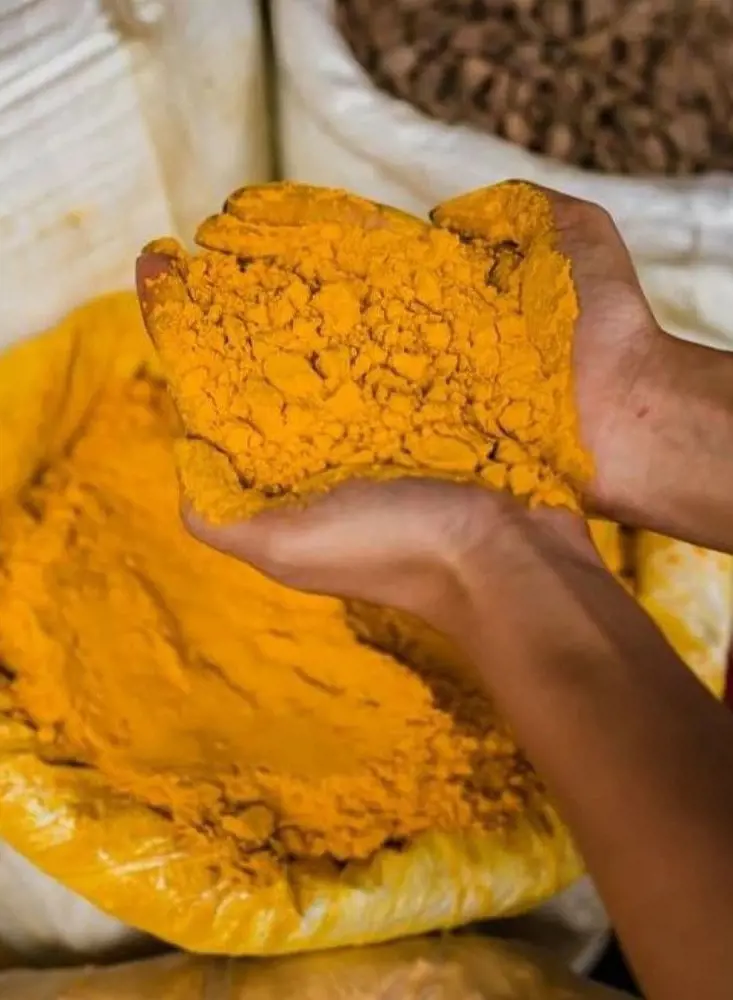
Apart from containing curcumin, turmeric is also rich in vitamin C, vitamin B6, and other antioxidants that reduce the risk of chronic health conditions. In addition, it is an excellent source of:
- Manganese
- Iron
- Potassium
- Omega-3 fatty acids
- Dietary fiber
According to the United States Department of Agriculture (USDA) National Nutrient Database, 100g of turmeric powder contains
- 312 calories
- 9.68 grams (g) of protein
- 3.25 g of fat
- 67.1 g of carbohydrates
- 22.7 g of fiber
- 0.3 g of sugar
Recent posts
Nutrition
Nutrition
Chia Seeds Benefits: 15 Reasons To Eat These Tiny Seeds
Chia seeds are tiny edible seeds obtained from the plant known as "Salvia hispanica", belonging to the mint family. Oval, gray, and filled with black and white spots, these small seeds are highly valued for their abundant nutrients and health be...
Nutrition
How Much Calcium Is Actually Needed?
Calcium is a mineral associated with bones, muscles and the nervous system in the body. Current dietary guidelines suggest different Recommended Dietary Allowances(RDAs) for adult males and females, with 1000mg being optimal for males and 1200mg for...
Nutrition
B12 Vitamin Food Sources: A Comprehensive Guide
Vitamin B12, an essential nutrient, plays a crucial role in various bodily functions, including red blood cell production, nerve function, and DNA synthesis. While animal-based foods are the primary sources of B12, certain fortified plant-based foods...
Nutrition
What Foods Are High In Cholesterol? 20 Foods To Avoid
Animal products like meat, eggs, milk, and cheese are sources of dietary cholesterol, unlike plant-based foods. For those aiming to lower their cholesterol intake, it's essential to be mindful of animal-based food choices. While some high-cholesterol...
Nutrition
18 Fat Burning Smoothies For Weight Loss
The weight loss journey is tough if you have to get on the same path day after day, facing cravings and temptations along the way. We suggest you stop making it a monotonous struggle and make it a flavorful adventure instead. One of the easiest and m...
Nutrition
Are Egg Whites Good For You? Benefits, Nutrition, And How To Eat?
Egg whites are popular these days while egg yolks are considered a health havoc. This claim is not always true but if you are someone who is going through weight gain problems or other conditions like heart disease, it's important to focus on egg whi...
